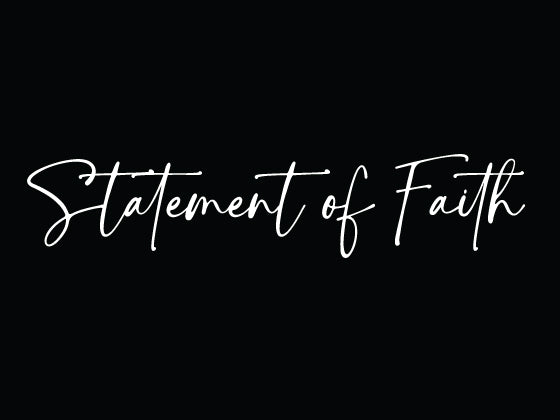Today's Scriptures | Genesis 41 and Matthew 13:1-32
Genesis 41
Pharaoh’s Dreams
41 When two full years had passed, Pharaoh had a dream: He was standing by the Nile, 2 when out of the river there came up seven cows, sleek and fat, and they grazed among the reeds. 3 After them, seven other cows, ugly and gaunt, came up out of the Nile and stood beside those on the riverbank. 4 And the cows that were ugly and gaunt ate up the seven sleek, fat cows. Then Pharaoh woke up.
5 He fell asleep again and had a second dream: Seven heads of grain, healthy and good, were growing on a single stalk. 6 After them, seven other heads of grain sprouted—thin and scorched by the east wind. 7 The thin heads of grain swallowed up the seven healthy, full heads. Then Pharaoh woke up; it had been a dream.
8 In the morning his mind was troubled, so he sent for all the magicians and wise men of Egypt. Pharaoh told them his dreams, but no one could interpret them for him.
9 Then the chief cupbearer said to Pharaoh, “Today I am reminded of my shortcomings. 10 Pharaoh was once angry with his servants, and he imprisoned me and the chief baker in the house of the captain of the guard. 11 Each of us had a dream the same night, and each dream had a meaning of its own. 12 Now a young Hebrew was there with us, a servant of the captain of the guard. We told him our dreams, and he interpreted them for us, giving each man the interpretation of his dream. 13 And things turned out exactly as he interpreted them to us: I was restored to my position, and the other man was impaled.”
14 So Pharaoh sent for Joseph, and he was quickly brought from the dungeon.When he had shaved and changed his clothes, he came before Pharaoh.
15 Pharaoh said to Joseph, “I had a dream, and no one can interpret it. But I have heard it said of you that when you hear a dream you can interpret it.”
16 “I cannot do it,” Joseph replied to Pharaoh, “but God will give Pharaoh the answer he desires.”
17 Then Pharaoh said to Joseph, “In my dream I was standing on the bank of the Nile, 18 when out of the river there came up seven cows, fat and sleek, and they grazed among the reeds. 19 After them, seven other cows came up—scrawny and very ugly and lean. I had never seen such ugly cows in all the land of Egypt.20 The lean, ugly cows ate up the seven fat cows that came up first. 21 But even after they ate them, no one could tell that they had done so; they looked just as ugly as before. Then I woke up.
22 “In my dream I saw seven heads of grain, full and good, growing on a single stalk. 23 After them, seven other heads sprouted—withered and thin and scorched by the east wind. 24 The thin heads of grain swallowed up the seven good heads. I told this to the magicians, but none of them could explain it to me.”
25 Then Joseph said to Pharaoh, “The dreams of Pharaoh are one and the same. God has revealed to Pharaoh what he is about to do. 26 The seven good cows are seven years, and the seven good heads of grain are seven years; it is one and the same dream. 27 The seven lean, ugly cows that came up afterward are seven years, and so are the seven worthless heads of grain scorched by the east wind: They are seven years of famine.
28 “It is just as I said to Pharaoh: God has shown Pharaoh what he is about to do. 29 Seven years of great abundance are coming throughout the land of Egypt, 30 but seven years of famine will follow them. Then all the abundance in Egypt will be forgotten, and the famine will ravage the land. 31 The abundance in the land will not be remembered, because the famine that follows it will be so severe. 32 The reason the dream was given to Pharaoh in two forms is that the matter has been firmly decided by God, and God will do it soon.
33 “And now let Pharaoh look for a discerning and wise man and put him in charge of the land of Egypt. 34 Let Pharaoh appoint commissioners over the land to take a fifth of the harvest of Egypt during the seven years of abundance.35 They should collect all the food of these good years that are coming and store up the grain under the authority of Pharaoh, to be kept in the cities for food. 36 This food should be held in reserve for the country, to be used during the seven years of famine that will come upon Egypt, so that the country may not be ruined by the famine.”
37 The plan seemed good to Pharaoh and to all his officials. 38 So Pharaoh asked them, “Can we find anyone like this man, one in whom is the spirit of God[a]?”
39 Then Pharaoh said to Joseph, “Since God has made all this known to you,there is no one so discerning and wise as you. 40 You shall be in charge of my palace, and all my people are to submit to your orders. Only with respect to the throne will I be greater than you.”
Joseph in Charge of Egypt
41 So Pharaoh said to Joseph, “I hereby put you in charge of the whole land of Egypt.” 42 Then Pharaoh took his signet ring from his finger and put it on Joseph’s finger. He dressed him in robes of fine linen and put a gold chain around his neck. 43 He had him ride in a chariot as his second-in-command,[b]and people shouted before him, “Make way[c]!” Thus he put him in charge of the whole land of Egypt.
44 Then Pharaoh said to Joseph, “I am Pharaoh, but without your word no one will lift hand or foot in all Egypt.” 45 Pharaoh gave Joseph the name Zaphenath-Paneah and gave him Asenath daughter of Potiphera, priest of On,[d] to be his wife. And Joseph went throughout the land of Egypt.
46 Joseph was thirty years old when he entered the service of Pharaoh king of Egypt. And Joseph went out from Pharaoh’s presence and traveled throughout Egypt. 47 During the seven years of abundance the land produced plentifully.48 Joseph collected all the food produced in those seven years of abundance in Egypt and stored it in the cities. In each city he put the food grown in the fields surrounding it. 49 Joseph stored up huge quantities of grain, like the sand of the sea; it was so much that he stopped keeping records because it was beyond measure.
50 Before the years of famine came, two sons were born to Joseph by Asenath daughter of Potiphera, priest of On. 51 Joseph named his firstborn Manasseh[e]and said, “It is because God has made me forget all my trouble and all my father’s household.” 52 The second son he named Ephraim[f] and said, “It is because God has made me fruitful in the land of my suffering.”
53 The seven years of abundance in Egypt came to an end, 54 and the seven years of famine began, just as Joseph had said. There was famine in all the other lands, but in the whole land of Egypt there was food. 55 When all Egypt began to feel the famine, the people cried to Pharaoh for food. Then Pharaoh told all the Egyptians, “Go to Joseph and do what he tells you.”
56 When the famine had spread over the whole country, Joseph opened all the storehouses and sold grain to the Egyptians, for the famine was severe throughout Egypt. 57 And all the world came to Egypt to buy grain from Joseph,because the famine was severe everywhere.
Matthew 13:1-32
The Parable of the Sower
13 That same day Jesus went out of the house and sat by the lake. 2 Such large crowds gathered around him that he got into a boat and sat in it, while all the people stood on the shore. 3 Then he told them many things in parables, saying: “A farmer went out to sow his seed. 4 As he was scattering the seed, some fell along the path, and the birds came and ate it up. 5 Some fell on rocky places, where it did not have much soil. It sprang up quickly, because the soil was shallow. 6 But when the sun came up, the plants were scorched, and they withered because they had no root. 7 Other seed fell among thorns, which grew up and choked the plants. 8 Still other seed fell on good soil, where it produced a crop—a hundred, sixty or thirty times what was sown. 9 Whoever has ears, let them hear.”
10 The disciples came to him and asked, “Why do you speak to the people in parables?”
11 He replied, “Because the knowledge of the secrets of the kingdom of heavenhas been given to you, but not to them. 12 Whoever has will be given more, and they will have an abundance. Whoever does not have, even what they have will be taken from them. 13 This is why I speak to them in parables:
“Though seeing, they do not see;
though hearing, they do not hear or understand.
14 In them is fulfilled the prophecy of Isaiah:
“‘You will be ever hearing but never understanding;
you will be ever seeing but never perceiving.
15 For this people’s heart has become calloused;
they hardly hear with their ears,
and they have closed their eyes.
Otherwise they might see with their eyes,
hear with their ears,
understand with their hearts
and turn, and I would heal them.’[a]
16 But blessed are your eyes because they see, and your ears because they hear. 17 For truly I tell you, many prophets and righteous people longed to see what you see but did not see it, and to hear what you hear but did not hear it.
18 “Listen then to what the parable of the sower means: 19 When anyone hears the message about the kingdom and does not understand it, the evil onecomes and snatches away what was sown in their heart. This is the seed sown along the path. 20 The seed falling on rocky ground refers to someone who hears the word and at once receives it with joy. 21 But since they have no root, they last only a short time. When trouble or persecution comes because of the word, they quickly fall away. 22 The seed falling among the thorns refers to someone who hears the word, but the worries of this life and the deceitfulness of wealth choke the word, making it unfruitful. 23 But the seed falling on good soil refers to someone who hears the word and understands it. This is the one who produces a crop, yielding a hundred, sixty or thirty times what was sown.”
The Parable of the Weeds
24 Jesus told them another parable: “The kingdom of heaven is like a man who sowed good seed in his field. 25 But while everyone was sleeping, his enemy came and sowed weeds among the wheat, and went away. 26 When the wheat sprouted and formed heads, then the weeds also appeared.
27 “The owner’s servants came to him and said, ‘Sir, didn’t you sow good seed in your field? Where then did the weeds come from?’
28 “‘An enemy did this,’ he replied.
“The servants asked him, ‘Do you want us to go and pull them up?’
29 “‘No,’ he answered, ‘because while you are pulling the weeds, you may uproot the wheat with them. 30 Let both grow together until the harvest. At that time I will tell the harvesters: First collect the weeds and tie them in bundles to be burned; then gather the wheat and bring it into my barn.’”
The Parables of the Mustard Seed and the Yeast
31 He told them another parable: “The kingdom of heaven is like a mustard seed, which a man took and planted in his field. 32 Though it is the smallest of all seeds, yet when it grows, it is the largest of garden plants and becomes a tree, so that the birds come and perch in its branches.”










